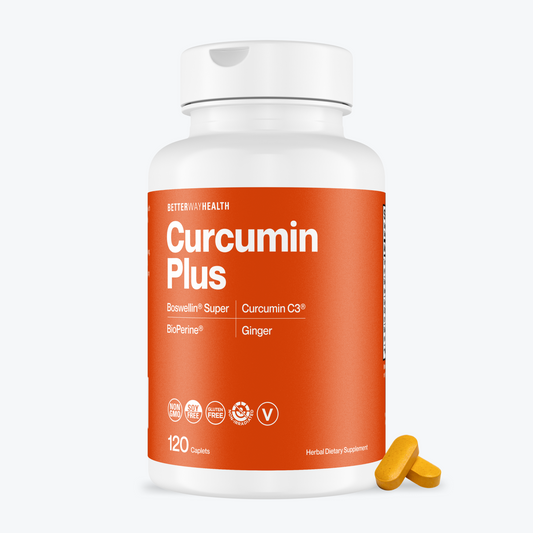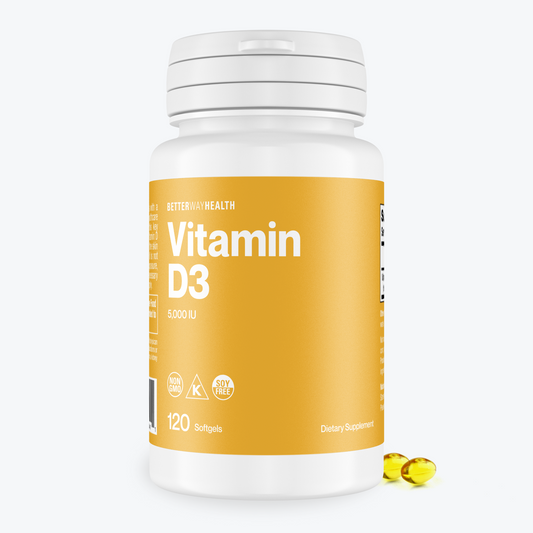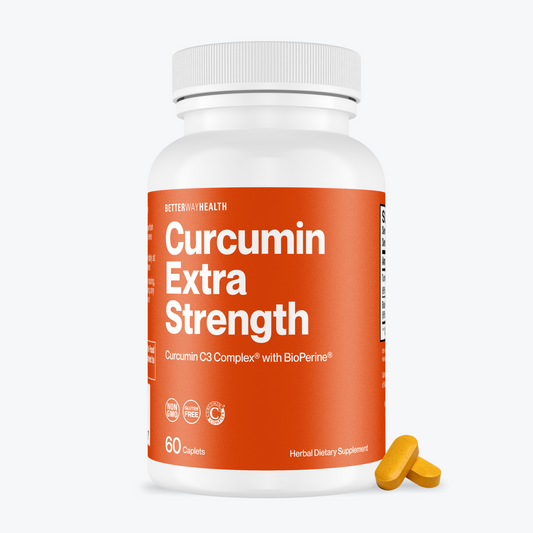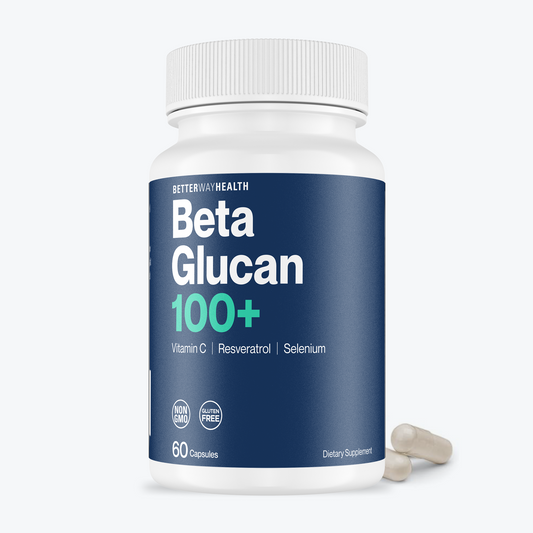Aloe Vera for Eczema: A Natural Approach to Skin Relief
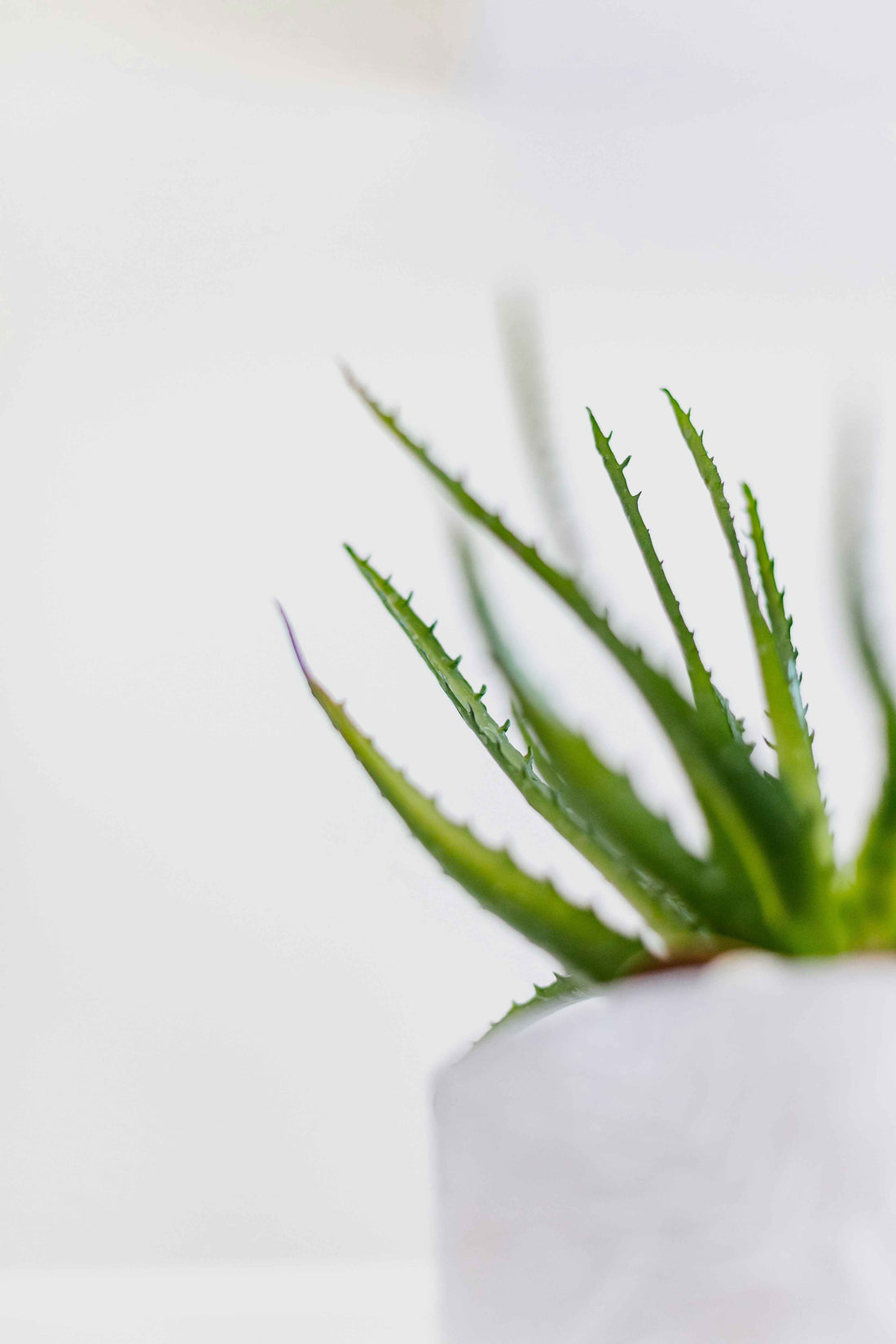
This resource is part of our series on Aloe Vera Skin Benefits.
Eczema is a skin condition that can cause dry, cracked, and irritated skin. Severe cases of eczema can result in skin crusting, small bumps, and crusting.
Despite there being no specific treatment for eczema, there are a variety of natural skin options available.
Aloe vera is a natural treatment for eczema that may be an effective remedy with a variety of benefits.
The Healing Power of Aloe Vera
Aloe vera is a plant species with deep origins in Asia and other tropical areas and is renowned for its numerous health benefits.
The gel extracted from this succulent plant boasts an impressive array of antioxidants and antimicrobial properties that contribute significantly to skin health. (1)
Aloe vera contains long chains of carbohydrate molecules (polysaccharides), which could assist in new skin growth and healing.

Aloe Vera as a Treatment for Eczema
In addition to its natural antioxidant properties, the plant may help with various skin conditions, such as:
- Dry skin
- Skin rashes
- Itchy skin
- Sunburn
- Acne
- Wound healing and burns (2)
Medicinal Benefits
Research indicates that aloe vera contains several active compounds, including vitamins, minerals, amino acids, enzymes, and anti-inflammatory properties. (3) When applied topically, these elements work together to promote overall skin wellness.
Antioxidants play an essential role in maintaining healthy skin as they help combat free radicals. Free radicals are unstable molecules capable of causing cellular damage that may lead to premature aging and disease progression.
Studies have shown that topical application of products containing these beneficial compounds can enhance collagen production. The skin can experience an increase in elasticity while reducing inflammation linked to various dermatological conditions like atopic dermatitis and psoriasis. (4)
Evidence Supporting Aloe Vera's Effect on Eczema
According to findings published in the Journal of Dermatological Treatment, topical application of aloe vera extract significantly reduced patients' mild to moderate atopic dermatitis (eczema) symptoms.
Using Aloe Vera for Eczema
Cleaning the area takes priority when preparing your skin for any topical treatment. Ensure that you cleanse the area with mild soap and warm water.
Rather than rubbing dry, which can aggravate sensitive, eczema-prone skin, pat gently instead.
A thin layer of pure aloe vera gel is all you need to apply directly to clean, dry patches where eczematous eruptions occur.
Gently massage in circular motions until fully absorbed by your epidermis.
Potential Side Effects of Using Aloe Vera for Eczema
Despite being generally safe, it is important to be aware of the potential risks and side effects when using aloe vera for eczema. Just like any other treatment or remedy, individual reactions may vary.
Common Adverse Reactions from Applying Aloe Vera
People who have experienced negative side effects of aloe have reported skin redness, burning sensations, or itching after application.
Side effects of eczema include:
- Skin inflammation
- Skin redness
- Itchiness
- Pain
If you experience discomfort when using aloe vera, stop using the product immediately and consult your healthcare provider or dermatologist.
It is also advisable to conduct an allergy test by applying small amounts of product to unaffected areas first before starting regular applications.

Other Natural Remedies to Consider Alongside Aloe Vera
Apart from aloe vera, there are other natural remedies that could potentially alleviate eczema symptoms.
These can potentially work in harmony with aloe vera to provide optimal relief.
- Beta glucan: Beta glucan is a natural compound with the ability to activate and strengthen your immune cells. When used topically on the skin, the cream can deeply nourish and hydrate all the layers of your skin. *
- Oatmeal baths: Known for their soothing properties, warm baths in oatmeal may help reduce the itching and inflammation associated with eczema.
- Vitamin C: Skin lotions and treatments containing Vitamin C may help shield the skin from environmental stresses and dryness by giving the skin antioxidants.
- Hyaluronic Acid: HA is a natural substance produced in the body. It plays an important role in skin hydration. The substance can retain moisture in the skin.
- Cotton clothing: Loose-fitting cotton clothes prevent irritation caused by synthetic fabrics or tight garments—an easy but effective change.
Why Use Beta Glucan for Skin?
Glucan cream activates its anti-aging properties to make wrinkles look less deep and can soothe your skin at the same time.*
By creating a three-dimensional network in the skin, this solution makes the skin more hydrated and decreases the loss of moisture.
The cream provides additional skin protection from harmful ultraviolet radiation and is an effective soothing cream for sunburn.*
Additional Benefits
- Stimulates the production of collagen and the growth of new cells
- Nourishes damaged or irritated skin
- Improves the healing of wounds
- Slows down the signs of aging
- Helps restore damage caused by sun exposure
- Thoroughly studied for hydration and safety
Beta Glucan Skin Care Ingredients
In addition to 64% ACTIValoe® aloe vera, our proprietary blend contains four essential hyaluronic acid compounds:
-
Hydrolyzed Sodium Hyaluronate: A smaller form of hyaluronic acid molecule that provides deep nourishment and water binding.
-
Sodium Hyaluronate: Helps to retain moisture in the skin, acting as a sponge to increase skin plumping and hydration.
-
Sodium Hyaluronate Cross Polymer: Water-filled hyaluronic HA gel that forms a smooth layer on the skin to provide extensive moisturizing benefits.
-
Citrus Blend: Natural blend of herbal extracts containing alpha hydroxy acids such as glycolic acid, citric acid, tartaric acid, and malic acid.
Dive deeper: How to enjoy glowing skin with Beta Glucan

The Science Behind Topical Beta Glucan
Glucan is the most studied natural supplement in the world, with over 50 medical studies published on a weekly basis.
An 8-week clinical study of women focusing on the topical application of beta glucan showed a 29% improvement in skin firmness, a 27% improvement in skin hydration, and a 56% improvement in the appearance of facial wrinkles. (5) (6)
FAQs in Relation to Aloe Vera for Eczema
Is aloe vera good for healing eczema?
Aloe vera may help soothe and moisturize dry, inflamed skin associated with eczema. However, it's not a cure but rather an aid in managing symptoms.
How do you use aloe vera for atopic dermatitis?
You apply pure aloe vera gel directly to the affected areas of your skin. Always conduct an allergy test first to ensure no adverse reactions occur.
What makes beta glucan cream different from the others?
Glucan lotion gets rid of free radicals, which helps its anti-aging components make wrinkles look less deep.* Most moisturizers only contain alpha-hydroxy acid, which may trigger skin irritation.
However, adding Beta Glucan to our unique cream makes alpha-hydroxy acid much less likely to dry out the skin. Glucan also protects the skin from UV radiation, which can be dangerous. This makes sunscreen more effective.
Conclusion
Even though aloe vera is not medically proven to successfully treat eczema, there is research to show its soothing effects.
Remember to do a patch test on your skin before using aloe to ensure you do not have bad reactions. Stop treatment immediately if you experience an allergic reaction and consult your doctor.
Science has proven that beta glucan lotion may be a trusted help for your skin due to its unique properties and nourishment for sensitive skin.
Beta Glucan cream may be able to boost the growth of skin cells, improve the production of collagen, and keep your skin hydrated.
(*These statements have not been evaluated by the Food and Drug Administration. This product is not intended to diagnose, treat, cure, or prevent any disease.)
Engage with more of our resources here.
Still have questions?
Our ACES Team is always there to help.




